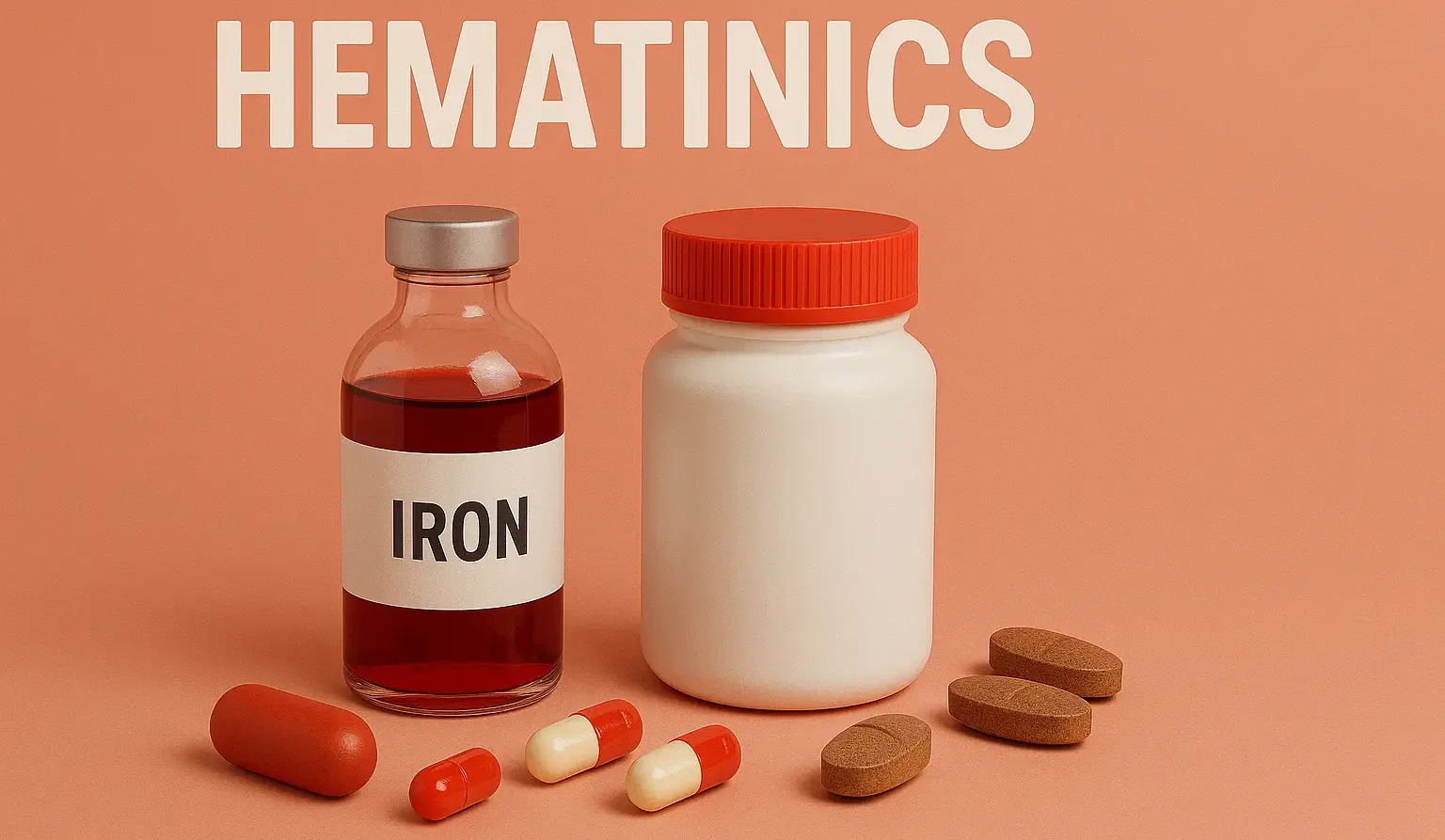Definition of Hematinics:
- Hematinics are agents that improve the hemoglobin content of the blood, thereby enhancing oxygen-carrying capacity.
- They are primarily used to treat anemia.
Some Major Hematinic Agents:
1. Iron Preparations:
- Ferrous Sulfate, Ferrous Gluconate:
- Mechanism: Supply elemental iron for hemoglobin synthesis.
- Use: Iron deficiency anemia.
- Side Effects: Gastrointestinal upset, dark stools.
- Iron Sucrose, Ferric Carboxymaltose (IV forms):
- Use: Patients unable to tolerate oral iron or with severe deficiency.
- Side Effects: Allergic reactions, hypophosphatemia with some IV formulations.
Advertisements
2.Vitamin B12 and Folic Acid:
- Mechanism: Essential for DNA synthesis in erythropoiesis.
- Use: Megaloblastic anemia due to B12 or folate deficiency.
- Side Effects: Generally well-tolerated; injection site reactions for B12.
3. Erythropoiesis-Stimulating Agents (ESAs) (e.g., Epoetin Alfa, Darbepoetin Alfa):
- Mechanism: Stimulate erythroid progenitor cells in the bone marrow to increase red blood cell production.
- Use: Anemia of chronic kidney disease, chemotherapy-induced anemia.
- Side Effects: Hypertension, thromboembolic events, pure red cell aplasia.
Advertisements

